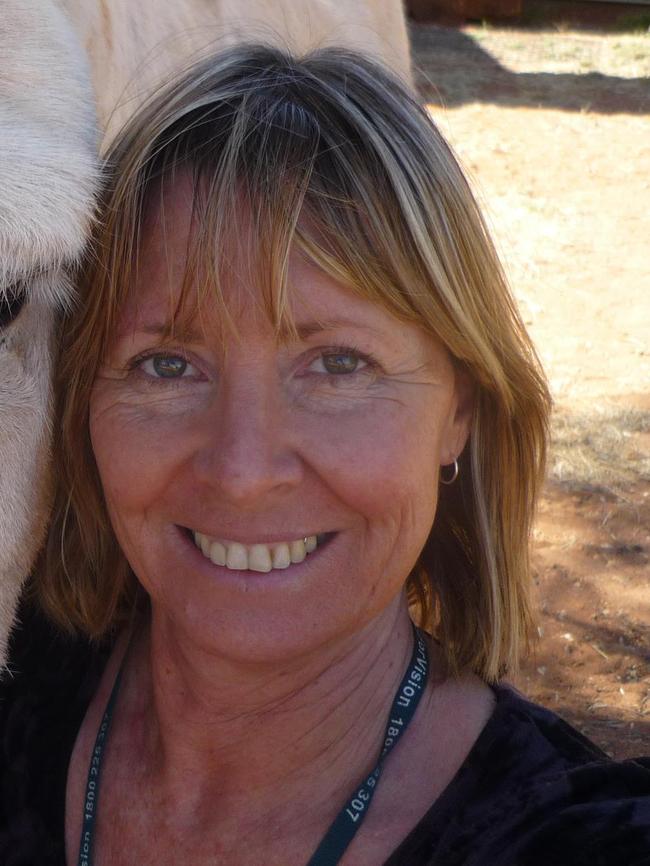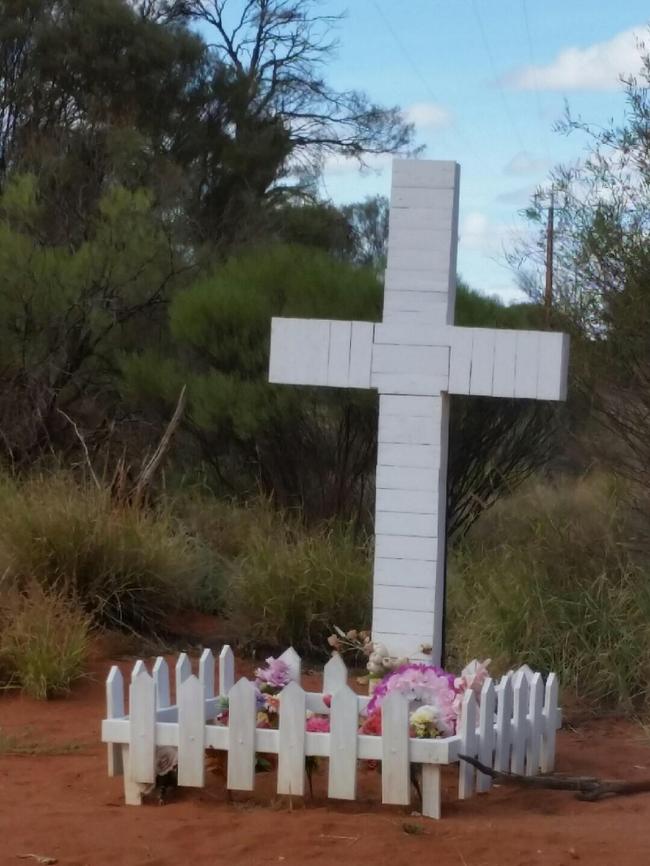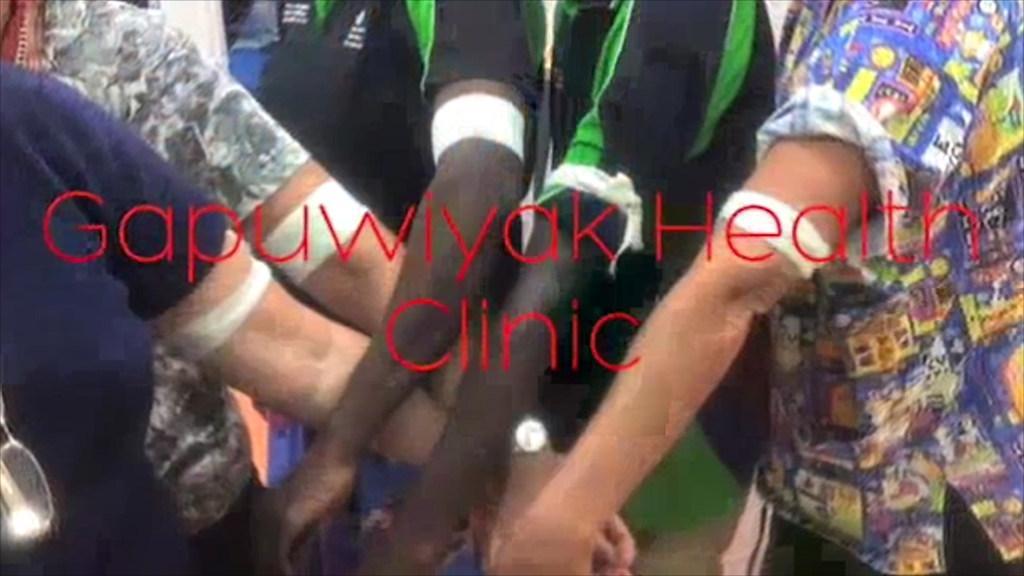New fears for young Outback nurses, as governments fail to make work safer a year after murder Gayle Woodford
SEX assaults, bullying and an exodus of experienced nurses from remote Aboriginal communities have thrust inexperienced nurses into dangerous situations, a year after a national call for “Gayle’s Law”.
- Dudley Davey pleads guilty to rape, murder of Gayle Woodford
- How Davey’s warning signs ignored as evil evolved
- Nurses unite to honour Gayle Woodford
- How we’ve left our Outback nurses alone
SEXUAL and physical assaults, bullying and an exodus of experienced nurses from remote Aboriginal communities have thrust unprepared and inexperienced nurses into dangerous and volatile situations, more than a year after a national call to implement “Gayle’s Law”.
As state Cabinet ministers meet today in the APY Lands, where Outback nurse Gayle Woodford was abducted and murdered in March last year, there are renewed calls for both state and federal governments to ensure her colleagues are never forced to attend remote call-outs alone.
The NT Government passed laws last December making it mandatory for nurses to have back-up on call-outs and is successfully using respected Aboriginal community members as escorts — but other states, including South Australia, have so far failed to follow.

The Advertiser is aware of other cases of remote nurses being assaulted across the country, including in South Australia.
South Australian NXT Senator Skye Kakoschke-Moore described the lack of action by the Federal Government — which funds the vast majority of SA Outback health providers — as “shameful”.
More than 155,000 people signed a petition supporting “Gayle’s Law”.
Last night, Senator Kakoschke-Moore launched a fresh call to action, calling on assistant Rural Health Minister David Gillespie to act on 33 recommendations made in a report by the professional body representing remote health workers, CRANAplus, after Ms Woodford’s murder.
“It’s been more than a year since Gayle was murdered, the government has had this report, which has 33 sensible and very realistic recommendations in, and nothing has changed,” Senator Kakoschke-Moore said, adding she may push for a Senate inquiry into the safety or remote health workers.
“It’s been ‘out of sight, out of mind’ for the government, and a Senate inquiry would shine a very intense light on all of the evidence,” she said.
“I’ve heard harrowing stories from nurses involving sexual assault, involving bullying, when they are on call-outs in these remote communities; what will it take for the Federal Government to listen and to start treating this issue seriously?”
A veteran nurse with experience in the Outback and international conflict and disaster zones, told The Advertiser many health workers were too frightened to speak out about worsening conditions in some communities, including the APY Lands.

Sue — who did not want her real name used because of fears she would “never work again” in some parts of the industry — said a toxic culture of bullying remained in many remote health providers, particularly non-government organisations.
She said many new non-government organisations were now recruiting nurses from New Zealand or straight out of nursing school, who often had no concept of the seismic cultural differences in Aboriginal communities.
“Some of them haven’t even done a grad program, they come in with no idea of what they’re coming into and they are making it even more dangerous for everybody,” Sue said.
“It’s not helping the community and it’s very dangerous for them. Quite a few of them won’t work again now — they’ve been assaulted and that might have been their first ever remote placement.”
Backing calls for federal funding to be tied to safety guarantees for rural nurses, Sue said she knew of cases in the past year in which Outback nurses had been raped, assaulted and bullied — as well as at least two suicides.
She said nurses often remained isolated within a volatile environment after being assaulted — and were often not supported by their employers.
“People have actually been assaulted and wanted to leave but have been threatened that they are breaching their contract by asking to be evacuated after being assaulted, so that sort of thing is quite ridiculous,” she said.
“There’s a lot of bullying from management if you arc up, if you say ‘this isn’t safe or I can’t stay here because my door doesn’t lock’, there are a lot of problems,” Sue said.
Senator Kakoschke-Moore said the continued violence and lack of preparation for contracted nurses was “frightening”.
“We have a situation where young and inexperienced graduates and perhaps nurses who are doing this job because they believe they are helping people and supporting some of our most vulnerable communities, and yet they’re being asked to do it at risk to their own safety,” she said.
Senator Kakoschke-Moore said a planned May ‘round table’ forum had not transpired and said the Federal Government must make safety requirements for workers a key benchmark when providing funding to remote health service providers, such as Nganampa Health Service in the APY Lands.
The National Rural Health Conference in Cairns last week heard that safety issues continued to prevent experienced nurses or midwives from taking contracts in far-remote communities.
A federal Health Department spokeswoman said CRANAplus had been funded to consult widely about concerns since Ms Woodford’s death and had reported to the department in January.
“CRANAplus is well-placed to complete other elements of the project which include developing practical safety and security guidelines and ... ensuring that appropriate resources are made freely available for use by health and broader remote and rural workforces,” she said.
“This package of measures has been reviewed and will be considered at the Australian Health Ministers Advisory Council health workforce meeting, with resources to be made available from the middle of this year.”
Australian Nursing and Midwifery Federation SA branch secretary Elizabeth Debars said guidelines weren’t enough and there needed to be laws to make it mandatory for such protections.
She said while most South Australian providers were funded federally, the State Government had done all it could to ensure protection for workers at the one provider funded by country Health SA.
She said it was “deeply concerning” that reports of assaults against nurses were continuing and that the issue should be given the utmost priority.
SA Health Minister Jack Snelling was unavailable for comment yesterday because he was in the APY Lands ahead of the community cabinet meeting.
But an SA Health spokesman said almost all remote nurses in South Australia were working for federally funded organisations, other than one service in the Oodnadatta area.

“Country Health SA does employ some remote nurses at one region. A strict policy is in place making it mandatory for them to work in pairs at all times,” the spokesman said.
Sue, who said she was now working for a responsible and innovative employer, said few could comprehend the levels of danger and isolation of nurses in communities when trouble broke out.
“I’m a tough cookie and quite a brave girl, and have done a lot of overseas work and been in war zones and whatnot — but I get scared walking five steps from the front door to the ambulance, I’ve been grabbed twice doing that,” she said.
Sue said the term “Gayle’s Law” had resonated with the Outback health community.
“We actually call it Gayle’s Law — when someone offers you a position we’ll ask ‘has it got Gayle’s Law? Or who’s on Gayle’s Law tonight, who’s our second person?” she said.
Sue said many experienced registered nurses like herself now refused to take contracts that did not provide Gayle’s Law protections, which she said should be standard across the board.
“Not a lot has happened across the rest of country, apart from the Northern Territory who really have tried to comply with all the requests — there is always two people and you’re never alone, at least in the government organisations,” she said.
Sue said the increasing use of methamphetamines in indigenous communities had added an extra element of danger for nurses.
“Ice (users), once they are on a rampage, and there’s no cops around, they can be crazy because they’re in a drug-induced psychosis and you’re stuck in that community with maybe no police or support for hours, which can be extremely dangerous and terrifying,” she said.
“Where I am working at the moment, I’m as safe as I can be — of course there are still lots of threats and stuff but I’m as safe as I can be — I’ve always got a second person and I’m never alone.”
Gayle Woodford’s family and friends and the APY Lands community are preparing for a sentencing submissions hearing in the Supreme Court later this month for Dudley David Davey, 37, who has pleaded guilty to her kidnap, rape and murder at Fregon.
Davey lured Ms Woodford from her Fregon home she shared with husband Keith before forcing her into an ambulance, killing her and burying her in a shallow grave in scrubland on the outskirts of the tiny community.
He faces a mandatory life prison term with a non-parole period of not less than 20 years.


